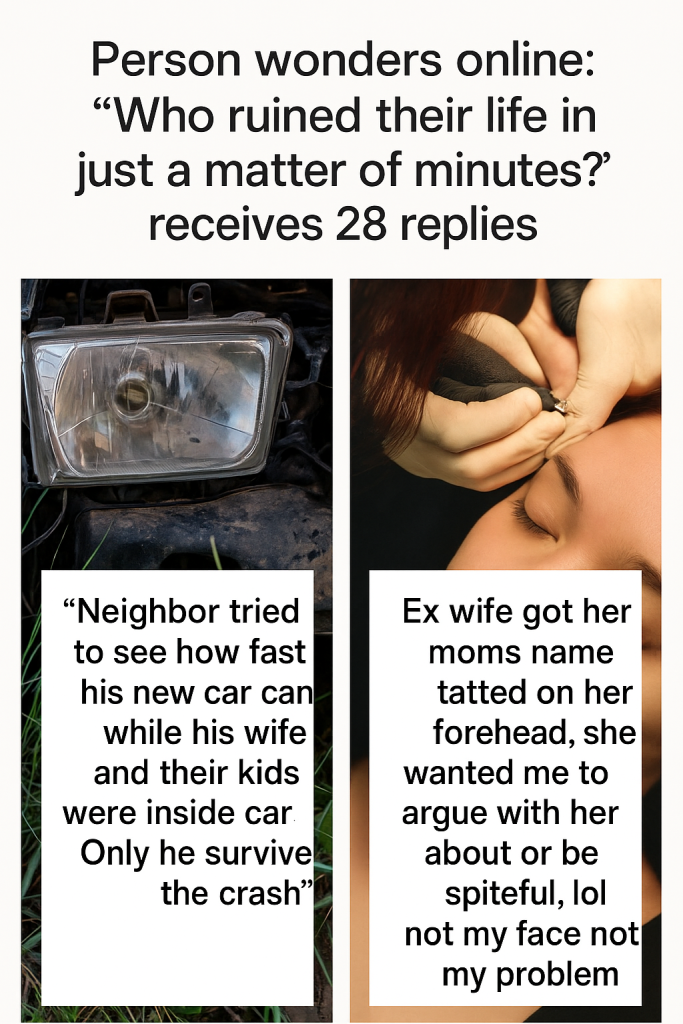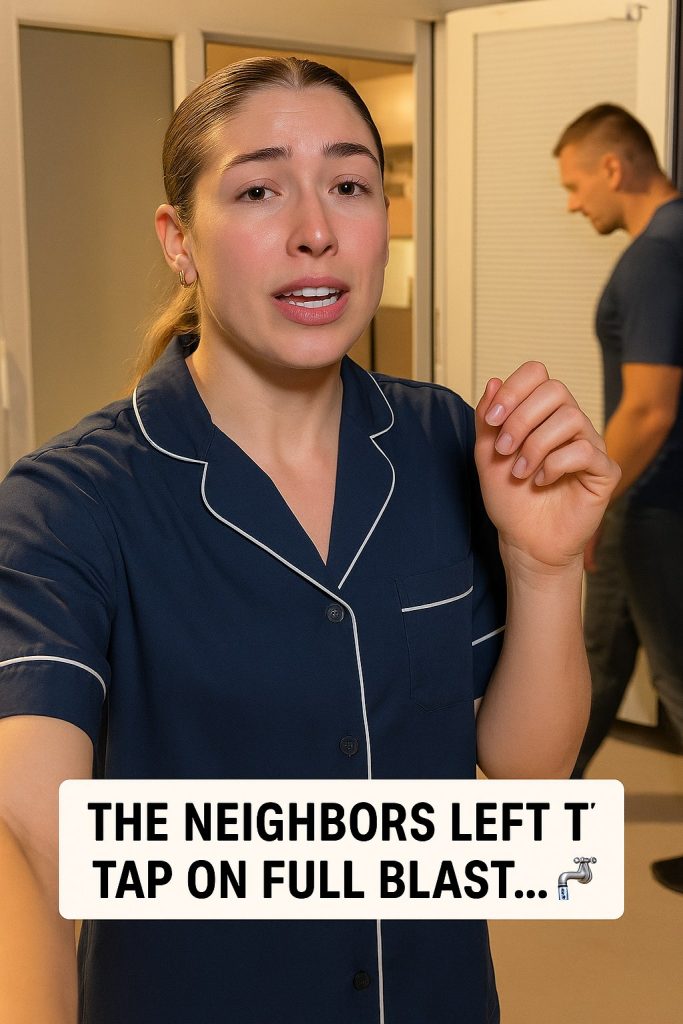In a captivating social media post that quickly gained widespread attention, an individual asked a poignant question that resonated with hundreds of users: “Who ruined their life in just a matter of minutes?” The post sparked an outpouring of support, empathy, and personal stories, including 28 direct replies that painted a vivid picture of an unexpected, life-altering moment involving a neighbor’s reckless behavior.
The original poster shared that their seemingly ordinary day was shattered within minutes when their neighbor — eager to test the speed of their newly purchased car — dangerously accelerated the vehicle with little regard for their surroundings. The roaring engine and screeching tires, initially a source of curiosity, soon became a symbol of chaos as the neighbor’s high-speed stunt spiraled out of control.
“I never imagined that testing a car’s speed in my own neighborhood could cause so much damage,” the poster wrote, capturing the shock and disbelief of an incident that dramatically affected their life. Though the post did not detail the full extent of the damage, commenters quickly pieced together the story, sharing theories and sympathies that ranged from property damage and noise disturbances to more serious consequences.
Many responders recounted similar experiences with inconsiderate neighbors whose reckless actions resulted in property loss, emotional distress, or legal trouble. One comment read, “My neighbor once did a burnout right outside my window, and it cracked the glass. It’s crazy how fast things can go from normal to catastrophic.”
Experts who have monitored this viral exchange point out that this incident underscores a broader social concern: the dangers of reckless driving in residential areas and the ripple effects that can disrupt entire communities. High-speed tests on public or residential streets not only pose a risk to drivers but also endanger neighbors’ safety and property, sometimes leaving irreversible damage in their wake.
According to safety guidelines typically promoted by community organizations, new vehicles should be tested responsibly, preferably in controlled environments such as racetracks or designated spaces away from residential neighborhoods. This viral social media conversation serves as a stark reminder of what can happen when these precautions are ignored.
In addition to the physical and emotional toll reflected in the original poster’s plea, the story has sparked a wider online debate about neighborly responsibility, legal accountability, and the importance of respecting shared spaces. Users across platforms have shared tips on how to address similar conflicts, encouraging dialogue, mediation, and if necessary, involvement from local authorities to prevent future incidents.
What makes this story so compelling is how quickly a moment of careless thrill-seeking transformed lives in mere minutes. The viral nature of the post, with its dozens of replies and personal anecdotes, illustrates the shared vulnerability and frustration many feel when unexpected actions by others cause lasting harm.
As the discussion continues to unfold online, it also highlights the empowering nature of social media as a platform where individuals can voice grievances, seek solidarity, and perhaps find a pathway to healing after sudden misfortune.
For now, the original poster awaits resolution — hopeful that their story will serve as a cautionary tale and motivate neighbors everywhere to choose safety over speed.



